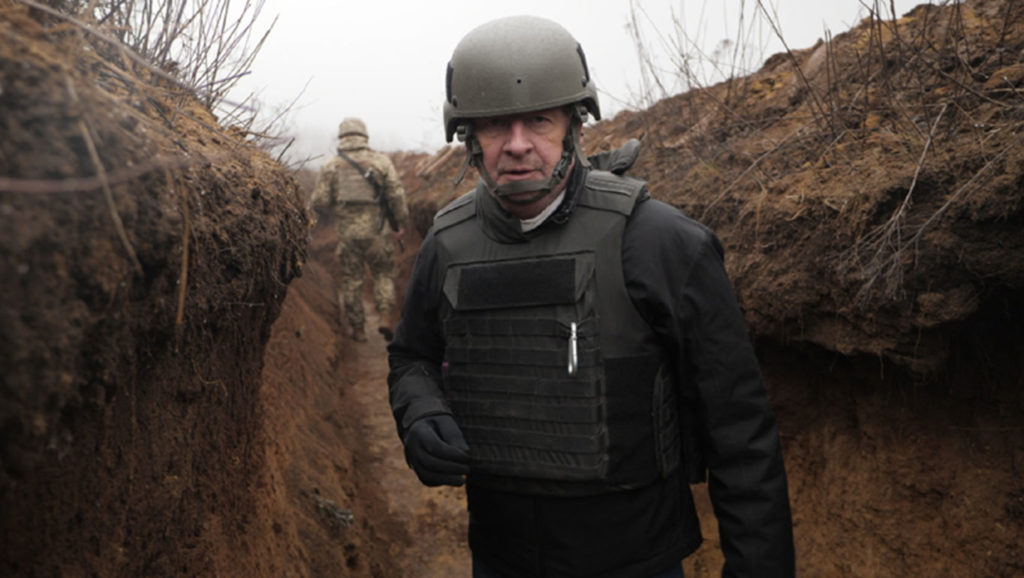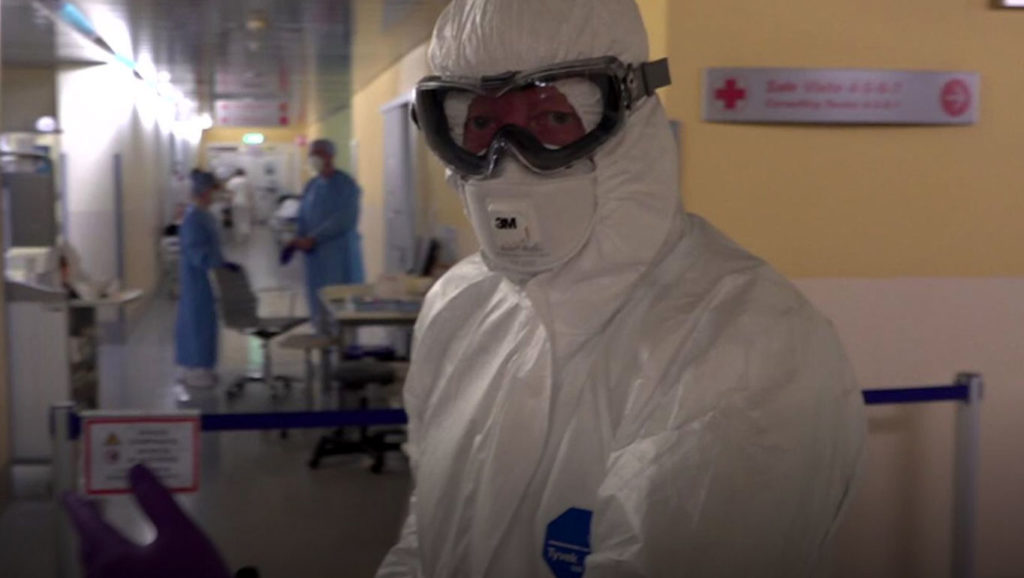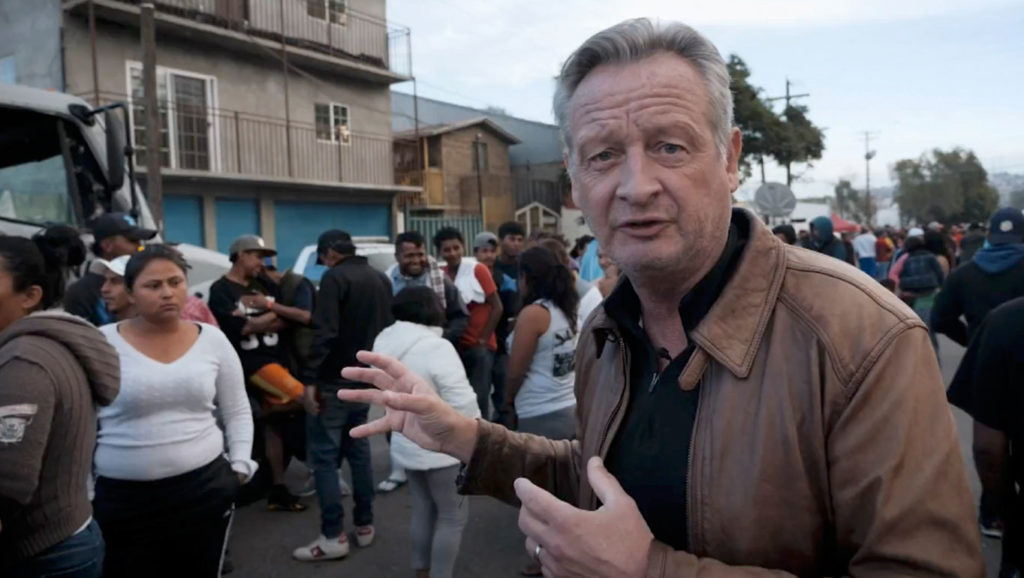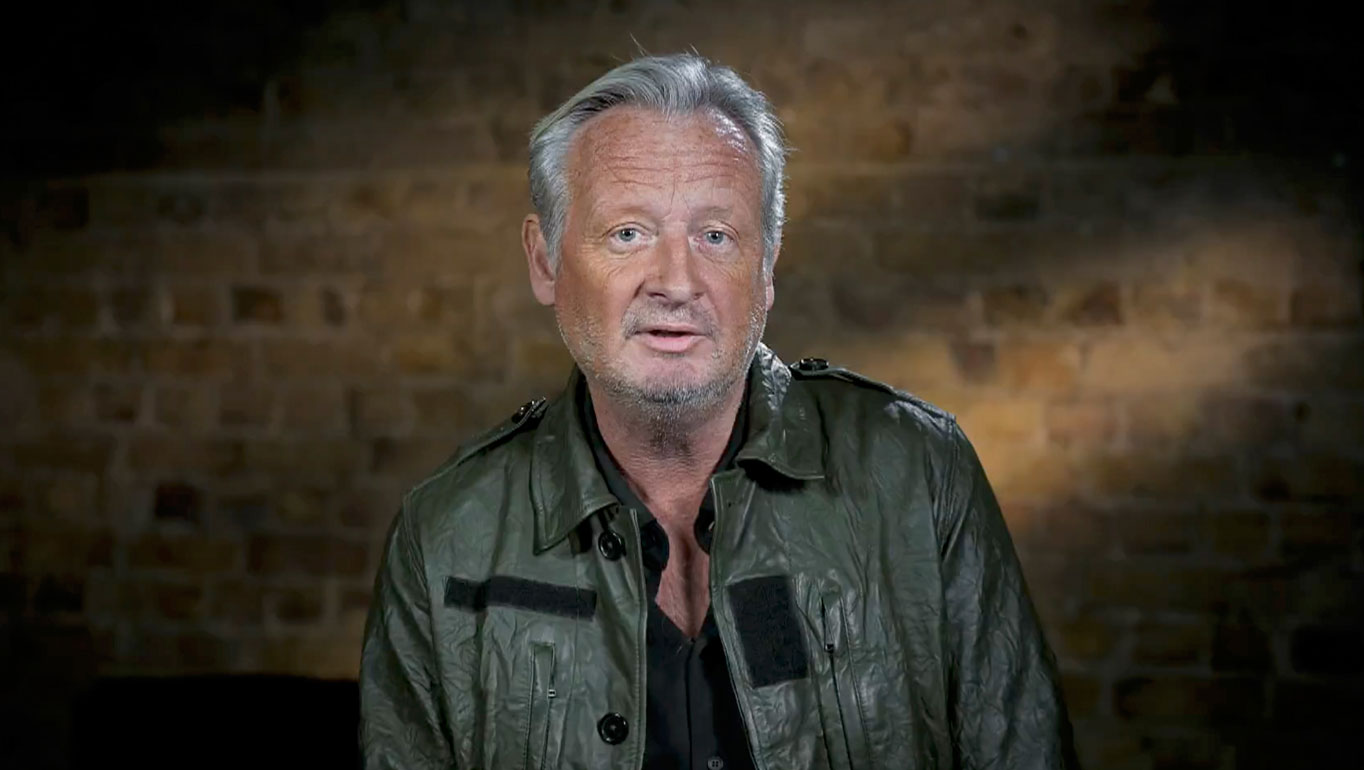This interview marks the start of a new series with people working in the media, to deliver the news and views that shape our perception of global affairs and events. This interview is with Stuart Ramsay, chief correspondent at Sky News, covering major global news stories and world events – including 18 separate wars over a 30-year career.
What is your journalism background?
I trained in a local newspaper, The Glamorgan Gazette in South Wales, under what was then called the “indenture” system. Basically, the newspaper group gave you an apprenticeship, paid for your National Council for the Training of Journalists (NCTJ) courses and got you through their “NCTJ Proficiency Test” that gave you a qualification. In exchange you worked for them on their papers for a couple of years afterwards. After that, I moved to the agencies in London where you learn the dark arts and secrets of super-fast reporting – particularly in courts and dealing with the national newspapers. My shorthand was staggeringly quick – less so now!
A reporter at Britain’s now defunct TV-am breakfast franchise was the best friend of my best friend’s brother – tenuous I agree. Anyway, he got me an interview with the head of the tv station who promptly told me I didn’t stand a hope in hell of getting into television journalism. While we discussed my complete lack of a future, a senior executive came in to speak to him and they went outside. Four hours later, slightly drunk, he came back from lunch to find me still in his office.
“F**k me what are you still doing here?” he asked. I said I didn’t want to be rude and leave without saying goodbye.
“Jesus effing Christ – you better have a shift tomorrow then,” he replied.
At the time there was an ambulance strike and TV-am couldn’t get the head of the union on the show – he was a big name. I was given the task of getting him on the show on my first shift, amidst many chuckles from other producers.
Thing is, what they didn’t know was I knew him. He duly came on the programme, and I got a job! I’ve learned you make your own luck in journalism. TV-am lost its franchise and Sky News was paid to produce the last few months of the news output. I was given to Sky on a sort of free transfer – that is over 30 years ago now. Funny old life.

What’s the best coverage you’ve ever done? Why?
I have been very proud of many stories over the years, but I think the revelation was the account of Italy’s Bergamo Hospital, showing what Covid-19 was going to look like and how it would rip through our lives. This will always be the biggest and best story of my life.
Since it is the first pandemic in 100 years and the only one reported on film, we did the very first stories in the emergency wards and intensive care units of northern Italy. Our reporting changed everything. We showed that not a single government was prepared for what was about to happen. The international reaction was staggering and people still write to me today.
What is the coverage or interview you’d like to do but haven’t been able to yet?
I am very fortunate in that I am in a position to do the stories I want to do. I am supported and often led by a team who do not consider any story above us or not attainable. I would love to have interviewed the Queen – she didn’t do interviews though, and is obviously now gone from us, but we do keep chipping away at certain global characters who would be interesting. Generally speaking though, I am not that interested in talking to famous people, I much prefer talking to ‘ordinary’ people, and their stories, wherever they are in the world, I have a better chance than most in covering when we identify them. My bosses are very supportive of anything we come up with. Our only impediment is our own imagination.

What is your view on the role of media?
In its simplest form, the news media should inform, report accurately and bear witness. That is what I try to do.
In my job I am paid to go to difficult places and show the world what is happening. To portray what is happening to people who don’t usually have a voice, and to expose the wrong doings or otherwise of the people and governments who purport to represent us or their own populations.
Of course the term “media” spans almost countless connotations of the concept of mass communication, be it news, entertainment, factual or fictional content. The problem is that governments, business leaders, dictators and influencers have a growing tendency to fail to see the difference between fact and fiction, often combining them to their own benefit or end. In my sphere of journalism and broadcast news, I remain determined to expose the interesting, the evil, the bad and the good in a way that is interesting and accurate.

What is your vision of media 10 years from now?
I hope that celebrity influencers, dishonest social networks and the unbridled reach of mega media companies and their harvesting of our data are been culled. although I don’t expect they will be.
However, I do think that people will start returning to media outlets that demonstrably show that they are doing their very best to report in an honest and unbiased way. Especially those that are attempting to expose the lies and falsehoods that are now considered normal fare for governments and leaders around the globe.
In practical terms, every news outlet will be (as it is already), a complete mesh of words, pictures, video, and audio, on a multitude of devices. The days of TV news as a single outlet on the box is dead already, to be honest.
Could you share an interesting work-related anecdote?
In the days leading up to gaining access to Bergamo Hospital and the Covid-19 story I mentioned before, we had moved to Milan and were inside the nominal exclusion zone that had been put in place by the Italian authorities.
The city was completely locked down and coming from the UK, we had never seen anything like it. We had secured access to another hospital in the city of Cremona but had a couple of days before our appointment with them. We knew that the city of Bergamo was the centre of the Covid outbreak and was recording huge numbers of deaths, but nobody had been able to see what that looked like.
Dominique Van Heerden, Sky’s Senior Foreign Producer, who works with me, said we should take a drive and see what was going on. I wasn’t overly keen, but couldn’t think of any reasonable reason why to say no, so we drove there in the morning.
It was deserted apart from a few people outside the town hall. We approached them and they said they were all registering the deaths of their family. It was spooky – like something from a disaster movie.
We wanted to speak to someone of authority and a man said we should ask the mayor, Giorgio Gori. We asked where he was, and he pointed across the square to a beautiful ornate building, saying it was the mayor’s office.
We walked over and bumped into a young man who asked who we were. We told him we wanted to speak to the mayor. “Okay he is upstairs, I will get him, cool,” he said. It turns out he was the mayor’s PR guy.
Giorgio came down from his office and was surprised to see us but agreed to an interview. It was astonishing – he had brought his two student daughters back from Britain to Bergamo, the centre of the Covid outbreak at the time, because he could see the disaster that was about to happen in the UK; because of the government’s refusal to lock down.
I knew we had a story, but while we chatted, Dominique nudged me to ask if we could get into the hospital to see what it was like. He said nobody could go in. “It is hell,” is how he put it. “But we have to show the world,” we said. He asked for a minute. We knew he agreed with us, but he had to make calls.
After some 30 minutes of pacing, he came back and said the hospital had reluctantly agreed. That was the start of the biggest story of my life. Old school knock-on-door journalism – The Glamorgan Gazette would be proud.



